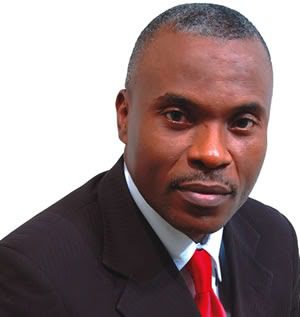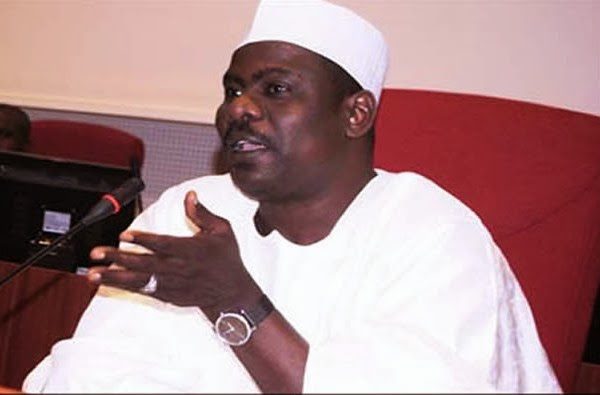Political Issues
When A President Chooses To Reward Incompetence -By Azuka Onwuka

The safest job in the world is that of being an aide to President Muhammadu Buhari. He is the only president in the world who does not sack his aides, no matter what they do or say. You are sure that whether you perform poorly or have a case of fraud against you, your job is guaranteed.
In the four years of Buhari’s Presidency, ministers who died or resigned never got replaced promptly. Aides who were accused of forging documents or holding positions

If the erstwhile Minister of Finance, Mrs Kemi Adeosun, had scorned the hoopla against the forged NYSC discharge certificate she submitted, nothing would have happened to her. Going by his antecedents, Buhari would not have sacked her, no matter the outrage.
When Buhari came into office in 2015, the key security issue facing Nigeria was Boko Haram’s terrorism. Many Nigerians were unhappy with the spate of bombings carried out by the Boko Haram group. It looked as if the Presidency of Dr Goodluck Jonathan had no answer to the regular killings and abductions carried out by the Boko Haram sect. Buhari promised Nigerians that if elected, he would end Boko Haram’s menace in Nigeria promptly.
However, under his watch, there has been an escalation in insecurity. On the positive side, Boko Haram was pushed back from executing attacks in Abuja and parts of the North-Central and North-West. The group now operates mainly in parts of the North-East, especially in Borno State. That is commendable. But members of the Boko Haram group have continued with their violent campaigns, even growing bolder by regularly attacking military formations and filming their successes against the military and broadcasting them.
In addition, unlike in the past when Boko Haram was the key security challenge, under Buhari, the murderous herdsmen and bandits have been added to the security imbroglio facing Nigeria.
The herdsmen have overrun many towns and villages in the North-Central and North-West, and even made forays into the South-East, South-West and South-South. From state to state, dozens of people are massacred and villages razed. The herdsmen have become more dangerous than Boko Haram. The President seems helpless. Sometimes, his office sends out condolence messages with a promise to end the killings. But the killings have continued.
While that is on, the intensity of killings in Zamfara State has risen. The nation did not understand fully what was going on in Zamfara. It was blamed on cattle rustling. However, only recently was it linked to the illegal mining of gold. The Governor of Zamfara State, Alhaji Abdulaziz Yari, last week claimed that 4,000 people had been killed in the state by bandits.
In addition, there is a rise in the spate of kidnapping for ransom, especially in the North. Kidnapping for ransom started in the oil-rich Niger Delta in the mid 2000s. Only expatriate oil workers were kidnapped initially. Later, the kidnappers moved over to politicians. Soon, the kidnappers began to abduct rich men and middle-class people. Then, kidnapping spread to the South-East, followed by the South-West, and then the North-Central, from where it spread to other parts of the North.
However, the boldness of the kidnappers operating in the North has become a source of worry. Travelling by road to Abuja or between Abuja and Kaduna has become a high-risk venture. Even top shots with their security detail now use the Abuja-Kaduna rail for fear of kidnappers. Other states in the North-West or North-East are not safe either. In the three zones of the South, kidnapping for ransom still occurs.
In all this, none of the security chiefs has been relieved of his post. Only the Inspector-General of Police, Mr Ibrahim Idris, whose tenure expired on January 15, 2019, was allowed to retire. In December 2017, Buhari even extended the tenure of the service chiefs. The Minister of Defence, Brigadier-General Mansur Dan-Ali (retd.); the National Security Adviser, Major-General Babagana Monguno (retd.); the Chief of Defence Staff, General Abayomi Olonoshakin; the Chief of Army Staff, Lieutenant General Tukur Buratai; and the Chief of Air Staff, Air Marshal Sadique Abubakar, have been retained since 2015. These crimes do not involve water, so the Chief of Naval Staff, Vice Admiral Ibok-Ete Ibas need not be mentioned here. His services are more needed in the Niger Delta where piracy, oil bunkering and militancy take place. Even in that area, there has not been any exceptional performance.
One is left to wonder what extraordinary feats these service chiefs, in addition to the retired IG of Police, performed to justify their retention in the last four years. How do you reward a security aide by retaining him and even extending his tenure even though there has been a rise in crime under his watch? What message are you sending across to such an aide and those who work under him? Are you not simply telling them that you reward incompetence and mediocrity?
It does not matter if the service chiefs are naturally highly competent, intelligent and skilful. It does not matter if they are merely unlucky that these crimes are coincidentally occurring under their tenure. The bottom line is that these crimes are happening and they have not been able to contain them or eliminate them. For that inability, the only option available for the President is to sack them and replace them with other people who may do better. And if their replacements fail to solve the problem, they get fired too.
But because it is not in the DNA of Buhari to sack people, none of the service chiefs has been sacked. It seems that Buhari is, therefore, comfortable with sending condolence messages to the families of those killed every week in one part of the country or the other. The service chiefs, having seen that their boss will never sack them, have become complacent, doing whatever pleases them. They can choose whom to arrest and detain as long as they want or the community to send soldiers to attack, knowing full well that there will be no repercussion.
Among the ministers, advisers, assistants and heads of agencies and parastatals, it is the same story. Nobody gets fired or punished for incompetence or any infraction.
That is poor leadership. A good leader is decisive. A good leader does periodic assessment of his subordinates to know those who are fit to be part of the vision of making a difference in the organisation. Those who add no value or who do not share the same vision with the leader are replaced. That helps to put all the subordinates on their toes, thereby making them bring out their best. But when they know that their position is guaranteed, they simply give their minimum.
By May 29, Buhari will start
Follow on Twitter @BrandAzuka




















